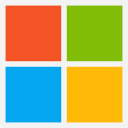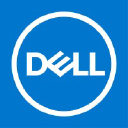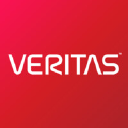Best Data Archiving Software 2024 | SoftwareReviews
1. Google Vault
- Integrates with Google Apps
- Advanced data archiving and eDiscovery capabilities
- Robust security features

Google Vault offers advanced data archiving, eDiscovery, and legal hold capabilities. Its seamless integration with Google Apps and robust security features make it a valuable asset for businesses.
With scalable pricing and user-friendly functionality, Google Vault is a cost-effective solution for businesses of all sizes.
2. Bloomberg Vault
- Integrated compliance and surveillance solution
- Real-time monitoring of data
- Streamlined workflows
- Next-level security

Bloomberg Vault is an integrated compliance and surveillance solution designed to help global financial services firms meet their regulatory obligations and business standards. The platform offers real-time monitoring, streamlined workflows, and next-level security, providing a comprehensive solution for compliance and control roles in the financial sector.
3. Microsoft Exchange Online Archiving
- Top-notch data security and encryption
- Storage optimization for cost-effective long-term data retention
- Support for multiple data formats

Microsoft Exchange Online Archiving provides top-notch data security, efficient storage optimization, and support for multiple data formats. With competitive pricing and reliable features, it offers a comprehensive solution for businesses' long-term data archiving needs.
4. Dell Data Protection Suite for Archive
- Secure long-term data archiving
- Support for multiple data formats
- Data encryption for enhanced security

Dell Data Protection Suite for Archive offers robust functionalities, including comprehensive data archiving, secure encryption, and versatile format support. With its cost-effectiveness and positive user feedback, it's a reliable solution for businesses seeking efficient long-term data storage.
5. Veritas Enterprise Vault
- Comprehensive archiving across all communication platforms
- Automated classification and retention of important data
- Efficient discovery and supervision of relevant information
- Integration with industry-leading compliance tools

Veritas Enterprise Vault offers seamless migration and comprehensive archiving for email, social media, and other communication platforms. It ensures compliance, provides actionable intelligence, and optimizes data retention with efficient discovery and supervision features.
With its integration with industry-leading compliance tools, Veritas Enterprise Vault offers a flexible and robust solution for businesses to achieve secure and compliant data management.
FAQ
What are the key features to look for in data archiving software?
When selecting data archiving software, consider features such as secure encryption to protect sensitive data, flexible data storage options including cloud and on-premises, comprehensive search and retrieval capabilities for efficient data access, and automated data lifecycle management to streamline archiving processes.
How does data archiving software differ from traditional backup solutions?
Data archiving software focuses on long-term retention and management of inactive data for compliance and historical reference, while traditional backup solutions primarily serve the point-in-time recovery of active data. Additionally, data archiving software often offers advanced indexing and search functionalities for efficient data retrieval, which may not be a primary focus of backup solutions.
What are the potential benefits of implementing data archiving software?
Implementing data archiving software can lead to reduced storage costs by offloading infrequently accessed data to more cost-effective storage tiers, improved regulatory compliance by retaining data in a compliant manner, enhanced data governance through structured archiving processes, and streamlined access to historical data for business insights and analytics.
How can businesses ensure the security of archived data?
To ensure the security of archived data, businesses should look for data archiving software that offers robust encryption algorithms for data at rest and in transit, access controls and permissions to restrict unauthorized access, audit trails and logging for visibility into data access and modifications, and regular security assessments and updates to mitigate potential vulnerabilities.
What are the considerations for migrating to a new data archiving software?
When migrating to a new data archiving software, considerations include data compatibility and migration tools to ensure a seamless transition, integration capabilities with existing systems to maintain data flow, training and change management for user adoption, and vendor support and service levels to address potential challenges during the migration process.

FAQ
When selecting data archiving software, consider features such as secure encryption to protect sensitive data, flexible data storage options including cloud and on-premises, comprehensive search and retrieval capabilities for efficient data access, and automated data lifecycle management to streamline archiving processes.
Data archiving software focuses on long-term retention and management of inactive data for compliance and historical reference, while traditional backup solutions primarily serve the point-in-time recovery of active data. Additionally, data archiving software often offers advanced indexing and search functionalities for efficient data retrieval, which may not be a primary focus of backup solutions.
Implementing data archiving software can lead to reduced storage costs by offloading infrequently accessed data to more cost-effective storage tiers, improved regulatory compliance by retaining data in a compliant manner, enhanced data governance through structured archiving processes, and streamlined access to historical data for business insights and analytics.
To ensure the security of archived data, businesses should look for data archiving software that offers robust encryption algorithms for data at rest and in transit, access controls and permissions to restrict unauthorized access, audit trails and logging for visibility into data access and modifications, and regular security assessments and updates to mitigate potential vulnerabilities.
When migrating to a new data archiving software, considerations include data compatibility and migration tools to ensure a seamless transition, integration capabilities with existing systems to maintain data flow, training and change management for user adoption, and vendor support and service levels to address potential challenges during the migration process.